‘War on Drugs’ Campaign- Means to End Drug Trafficking in Manipur?
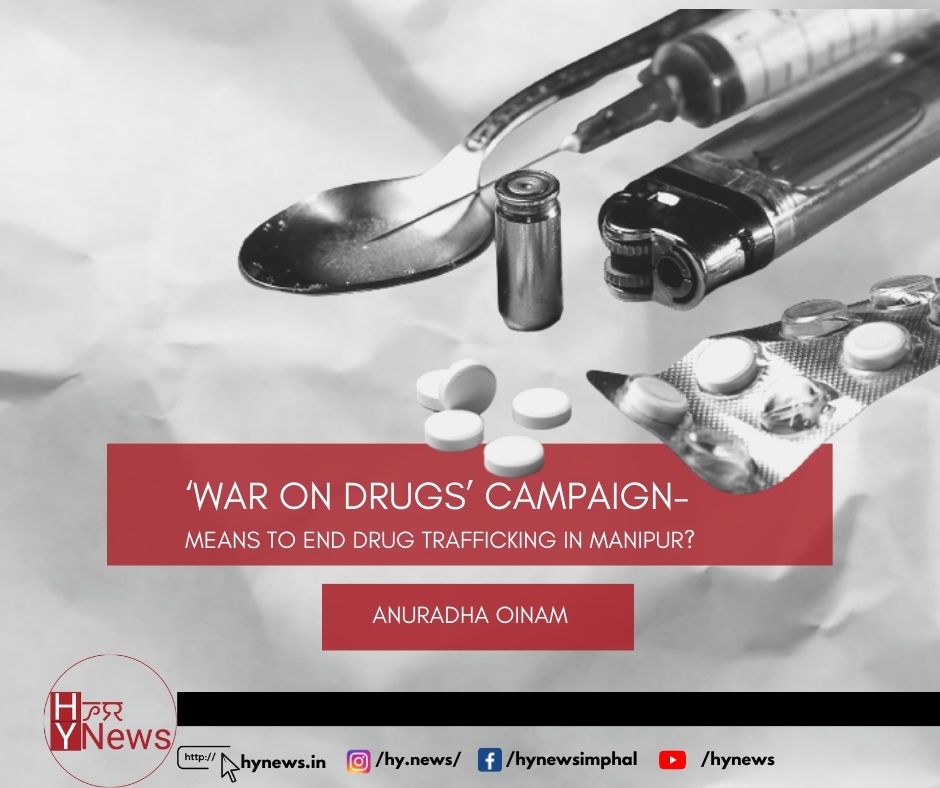
Progress and development are slowly but steadily taking place in Manipur, focussing on physical connectivity, new infrastructural projects, promoting tourism, and building new educational institutions and other related parameters to facilitate a secure life and prosperous economy. This will further contribute to empowering the state and the people as a platform for India’s Act East Policy by connecting with Southeast Asian (SEA) nations and beyond. Nevertheless, this new light at the end of the tunnel gets perturbed due to the widespread prevalence of drug trafficking via the porous Indo-Myanmar Border (IMB) and the increase in the number of drug users in the state. Drug trafficking is not a new trend in the state; however, the unprecedented rise of poppy cultivation raises a red signal that adversely impacts the northeast regions (NER) and the rest of India.
Drug mafias or drug kingpins have developed a strong network with Manipur and Myanmar to smuggle poppy out to Golden Triangle and vice versa. To uproot such detrimental threats from the soil, the state government launched campaigns such as ‘Nisha Thadoklasi’ and ‘War on Drugs in 2018. Under this campaign, the Chief Minister of Manipur, Shri Nongthombam Biren, aimed to destroy illegal poppy cultivation in hill regions, curtailing its distribution and trade using coercive and non-coercive methods[i]. However, the recent confiscation of drugs, a total of 44.5 Kg of ‘World is Yours (WY) tablets, aka ‘party drugs’ worth Rs 9 crores and another few Kg of WY tablets of Rs 5 crores in May and August 2022, respectively in Tengnoupal district of Manipur, bordering Myanmar[ii] exemplified that it is an issue that needs serious actions. There is no estimate of those unrecorded confiscations. Given the complexity of the problem, will the ‘War on Drugs’ campaign be a solution to the problem in the state?
Tobacco products, Ganja (marijuana), Alcohol, Opium, Spasmo Proxivon ( SP), Methamphetamine (WY), Codeine cough syrup, Pseudo-Epherine etc.,[iii] are some of the easily accessible drugs available in the state. Among all, opium, methamphetamine and heroin are illegally transported from Myanmar through Lashio, Mandalay and Bhamo to Manipur and Mizoram via Moreh and Champhai, respectively[iv]. In Manipur, drug trafficking remains no longer a local trade; it has become a multi-national business involving drug mafias from countries such as China, Myanmar, Bangladesh and Nepal[v]. Similarly, other northeastern states bordering Myanmar have clandestine networks to carry out this illegal and notorious business. Figure 1 shows the diagrammatic illustration of the nucleus of drug trafficking in northeast India. From this point onwards, it further circulates the smuggled drugs to the rest of the country.
The massive growth of illegal poppies in remote areas of Ukhrul, Senapati, Kangpokpi, Kamjong, Churachanpur and Tengnoupal districts of Manipur[Vi] , with massive investments by drug mafias has resulted in urea shortage in the state [Vii]. To control the same, the Manipur Narcotics and Affairs of Border (NAB) department reported that 963 drug traffickers, including 768 men and 195 women, were detained between April 27 and June 2019 under Narcotic Drugs and Psychotropic Substances (NDPS) Act[Viii]. Law Enforcement agencies destroyed 1,420 acres of poppy plantation between 2020 and February 2021[iX]. In the same year, Chief Minister N Biren Singh rewarded total cash of Rs 10 lakh to a village in Ukhrul district for voluntarily destroying poppy plants grown in the village [X]. Nevertheless, the problem persists. Hence, this coercive method does not seem effective in the long run until the government looks at the root causes of the problems and the reasons that push people to take the wrong path.
Socio-economically, the poppy cultivators belong to the most underprivileged section of society. They constantly struggle for basic amenities for their survival. Therefore, they are compelled to grow poppy because it is a profitable occupation, easy to grow along with other crops with the availability of cheap labour. Poppy cultivation is a ‘magic potion’ for them to get rid of their poverty[XI], while the investment comes from drug kingpins[XII].
Nevertheless, destroying poppies using a coercive method is not the right approach. This approach failed in countries like Afghanistan when the Taliban tried to ban opium in the country; the same happened in Thailand and Laos[XIII]. Instead, adopting alternative methods such as introducing development livelihood programmes for the cultivators to cultivate new crops such as ginger, cardamom, and lemongrass as substitute crops to replace poppy, facilitating proper rehabilitation, and a fair amount of compensation[XIV] [XV] without targeting them as ‘poppy victims’ will gradually reduce the production of opium in the state [XVI]. This alternate method has been a successful approach in the aforementioned three countries. It will have a’ balloon effect’ without offering any alternatives and compensation for their crops, wherein the farmers will shift the poppy cultivation to the remotest areas[XVII]. Similarly, the drug mafias and drug kingpins will find other ways to continue their business by building a new and more robust network with producers, smugglers and traders.
Reports have shown the increasing instances of alcoholism and drug addicts rising ‘to cope with the frustration in life due to lack of opportunities, poverty, unemployment, broken family or sometimes for self-amusement or to accompany friends[xviii]. Drug addicts or abusers are mostly the state’s youth since these substances are readily available at low prices. Therefore, the government must pay proper attention by looking at the inadequacy of social institutions to curb and prevent the youth from indulging in this risky habit[xix]. The usage of opium is engrained in the customs and traditions of the Manipuri society since raw opium and ganja were used as medicine or painkiller during childbirth or for religious purposes in ancient times[xx]. In addition, alcohol too is used in various social functions though it has been banned since 1991. However, the recent legalisation of liquor sales in 2022 led to dissatisfaction and demand for the government to reconsider this decision. Therefore, abolishing alcohol and eradicating illegal drug smuggling will be an onerous task if the government focuses only on coercive methods. The nexus of politicians with drug mafias involved in drug trafficking must be checked with necessary actions to uproot it entirely from society.
The government must focus on the development of the people, enhance their skills, and provide them with jobs and other related necessities in their lives. Along with stringent laws for illegal drugs and their associated activities, all sections of the society, including the local population, civil society organisations, political class, student unions and Meira Paibi/Women Torch Bearers of Manipur, should come together and fight against this societal evil. In addition, the IMB needs to be checked since the source of the influx of illegal drugs in the state comes from this porous border. Revision of the Free Movement Regime (FMR) is required with the effective functioning of the Integrated Check Post (ICP) and Land Custom Station (LCS) at the border. Otherwise, a new Golden Triangle will be emerged in India’s northeast region, reigniting the dormant insurgency with drug-induced finances. Lastly, Manipur, a potential pivot for India’s Act East policy connecting India with SEA nations, will become an insurmountable security challenge if the problem of drug trafficking is not tackled seriously.
(Article republished from Centre for Land Welfare Studies)
[i] ’Nisha Thadoklasi”, Manipur Govt Declares war on drugs’, mygov, 31 July 2019, https://blog.mygov.in/nisha-thadoklasi-manipur-govt-declares-war-on-drugs/
[ii] K Sarojkumar Sharma (2022), “Rs 5 crore party drugs Seized in Manipur’s Tengnoupal District, 1 Held”, The Times of India, August 28, 2022, https://timesofindia.indiatimes.com/city/imphal/rs-5-crore-party-drugs-seized-in-manipurs-tengnoupal-1-held/articleshow/93827388.cms
[iii] “Magnitude of Substance Use In India (2019)”, https://socialjustice.nic.in/writereaddata/UploadFile/Magnitude_Substance_Use_India_REPORT.pdf
[iv] Pushpita Das (2018), “Security Challenges and the Management of the Indo-Myanmar Border”, Startegic Analysis, 42, 6 (2018), Available at https://www.tandfonline.com/doi/pdf/10.1080/09700161.2018.1557932?needAccess=true
[v] “Drug Smuggling from/through Manipur”, E-Pao http://e-pao.net/epSubPageExtractor.asp?src=news_section.editorial.editorial_2021.Drug_smuggling_from_through_Manipur_TSE_20211122
[vi] Lily Sangpui and Jenny Kapngaihlian (2021), “ The Quest to End Illicit Poppy Cultivation in Manipur: Examining the War on Drugs Campaign”, Economic & Political Weekly, Vol. 56, Issue No. 32, 07 Aug, 2021, https://www.epw.in/engage/article/quest-end-illicit-poppy-cultivation-manipur
[vii] “Manipur: Congress Poll Observer Accuses Government of Diverting Urea Supply to Poppy Cultivation (2021)”, https://www.northeasttoday.in/2021/09/01/manipur-congress-poll-observer-accuses-government-of-diverting-urea-supply-to-poppy-cultivation/
[viii] N.1
[ix] “1420 Acres of Illicit Poppy Plantation Destroyed in 2020-2021, Sentinel, 11 January (2021) https://www.sentinelassam.com/north-east-india-news/manipur/manipur-1420-acres-of-illicit-poppy-plantation-destroyed-in-2020-2021-
[x] Prasanta Mazumdar (2021), “Maniour govt diverting urea for poppy plantations, claims Jairam Ramesh, The Indian Express, https://www.newindianexpress.com/nation/2021/aug/31/manipur-govt-diverting-urea-for-poppy-plantations-claims-jairam-ramesh-2352363.html
[xi] N.6
[xii] Ibid
[xiii] David Mansfield and Adam Pain (2005), “Alternative Livelihoods: Substance or Slogan? Afghanistan Research and Evaluation Unit, Briefing Paper Series
[xiv] Ngamjahao Kipgen (2019), “ Why Farmers in Manipur Cultivating Poppy?”, Economic and Political Weekly, https://www.epw.in/engage/article/why-are-farmers-manipur-cultivating-poppy
[xv] K Sarojkumar Sharma (2017), “Lemongrass to replace illegal poppy farming in Manipur”, The Times of India, https://timesofindia.indiatimes.com/city/imphal/lemongrass-to-replace-illegal-poppy-farming-in-manipur/articleshow/58237749.cms
[xvi] N.6
[xvii] Ibid
[xviii] Sanjenbam Jugeshor Singh (2022),”Menace of Alcoholism & Drug Abuse in Manipur”, The Frontier Manipur, April 23, 2022, https://thefrontiermanipur.com/menace-of-alcoholism-drug-abuse-in-manipur/
[xix] Ibid
[xx] N.1

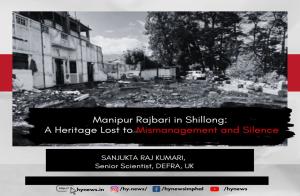









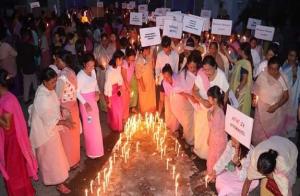
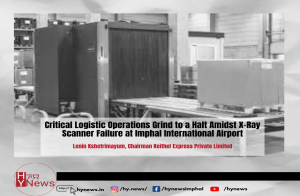


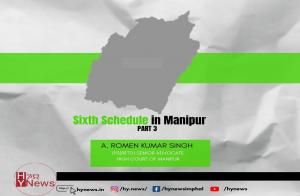
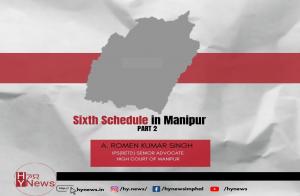



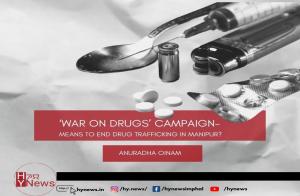
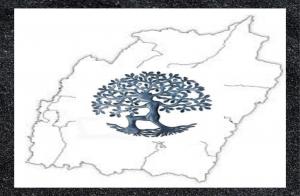














Leave Comments